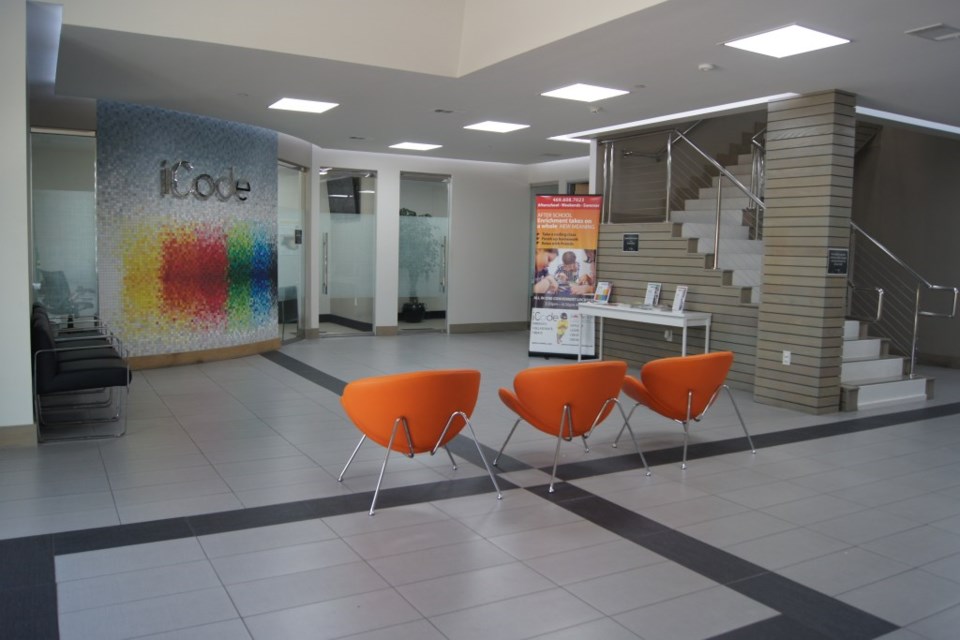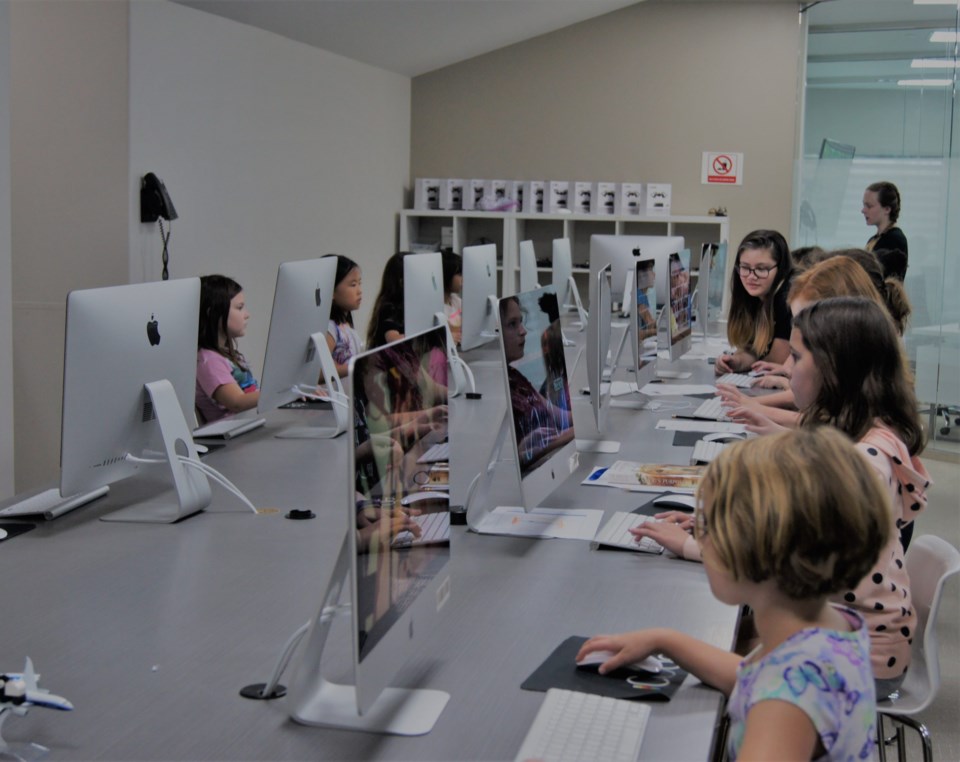iCode is an after-school program designed to teach kids how to code, but with a twist. While any website can just teach you coding, iCode operates on a project-based curriculum. Kids learn by going through a martial-arts style belt system where they learn coding techniques on par with their skill level. After learning the content, they’re presented with an open-ended project deliverable. In order to get to the next belt, they have to use their creativity and critical thinking to come up with a solution and present it to their peers. iCode also offers hackathons, where kids are put into groups with other students that they don’t know. They are given a challenge and one day to come up with a solution. If their solution is selected, they get to present it to crowds of 300 at the ATT Headquarters. These kids are learning how to code in Java, Python, and Raspberry, but the magic occurs in the soft skills they learn.
“What iCode is focused on,” says iCode founder Abid Abedi, “is teaching children the soft skills that are equally important as learning how to code. Presentation skills, teamwork, and working on a critical deadline do amazing things to the kids’ confidence.”
Not every child that goes through iCode will go into the programming industry, but learning to code in a problem-solving context is important nonetheless. “50-70% of the jobs we’re going to have in the future are not even created yet,” says Mr. Abedi. “If I were a betting man, I would bet that it has something to do with technology.” Developing the skill set that iCode provides at an early age sets kids at an advantage in the future workforce.
Also, here’s the thing: the kids love it.
iCode is currently hosting summer camps, and Jessica Johnston, iCode’s Director of Marketing, told me the sweetest story about a little girl at one of the summer camps. “She was just so very excited about the camp that she wanted to do,” says Jessica, “It was the media arts, and she had already had a storyline. At the camp, you storyboard and you do a short film, and she had already had her whole plan about what she was going to do. She was going to be the star, and she was going to make it about if people weren’t jealous of each other. It’s cute to be able to see a little person being so excited and so animated about something that we’re going to be able to teach them.”

Mr. Abedi had another heartwarming story, as told to him by the boy’s mother. “This child didn’t really have any friends at school, because all the other kids were playing sports. He developed a lack of confidence, but then, when he came to iCode, he realized there were other kids his age that liked what he liked. That made a tremendous difference in his level of confidence, his outlook, and how happy he is. It made an immense difference in his whole approach to school. He [originally] thought he was a weirdo because he didn’t know anybody that liked the same things. Confidence is the key to success, and iCode gave him that.”
iCode’s learning space is hyper-contemporary, with glass walls that the kids can write on, clean lines, bright colors, and Macs always available at arms reach. Each class of 10 has a lab mentor and a lab instructor, so that the average class has a student to teacher ratio of 5:1. Some classes even have a lower ratio of 4:1. In the iCode environment, kids are free to dream up techy, artsy solutions to their hearts’ content. “iCode is the only place where the kids drag their parents to take them,” says Abid Abedi. “I’ve seen that consistently. It’s because they think they’re coming to play. But at the same time, they’re learning concepts that high school kids are probably not even exposed to.”
Mr. Abedi says that soon, iCode will launch adult classes as well. This branch of iCode will be called iCode University and will be teaching adults cybersecurity. iCode’s also plans to include digital aspects to their courses, where kids (and soon, adults) can learn how to code at home on their technology and then come to iCode for the practical application.
One of iCode’s most exciting future developments would have to be the Disability Program, which will be implemented in Fall of 2018. 15% of the US’s adult population has at least one child with learning disabilities, and as far as after-school programs go, these children have very limited options. Soon, in the DFW area, these children will have an equipped space to learn coding as well.
With locations in McKinney, North Dallas, Coppell, Southlake, and two in Frisco, iCode provides kids all over the metroplex with the chance to develop their skills. I can say with total honesty that I wish I had iCode growing up, so if you have a child that you think may be interested, give it a shot! Visit icodeschool.com for more information.
Read more: STEM education and the future of business in North Texas




